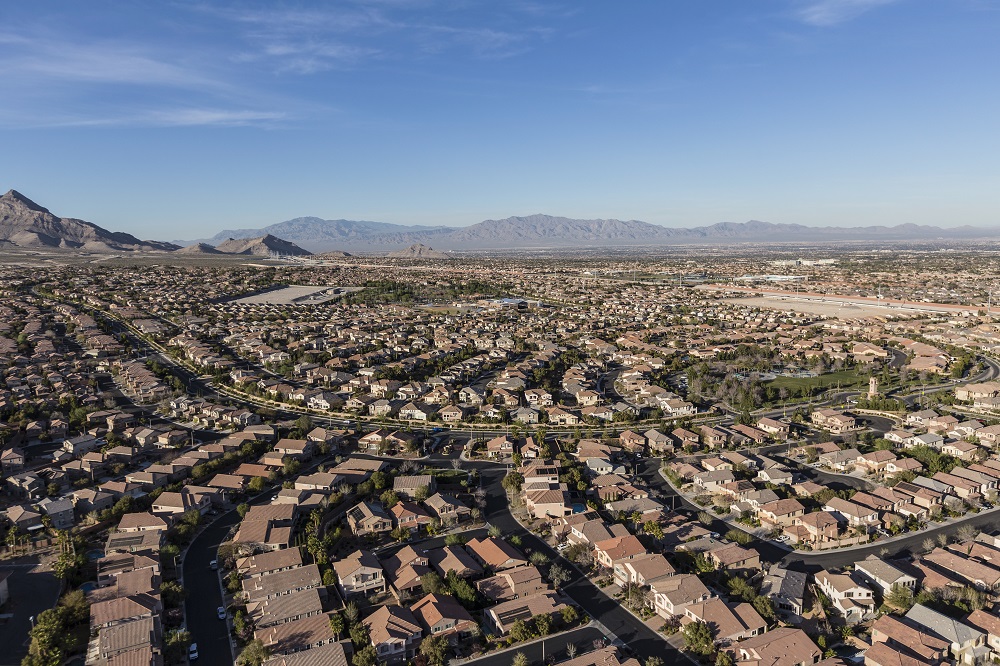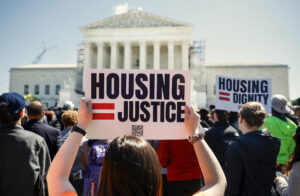4:04
News Story
Bubble? What bubble? Fitch, Forbes wrong, LV experts say
A Fitch Ratings report published by Forbes designating Las Vegas as the most overvalued real estate market in the nation has homeowners who survived the foreclosure crisis jittery and real estate agents angry. But experts say contrary to increasingly frequent warnings from Fitch and others, Las Vegas is not in danger of suffering another housing bubble. We’re just coming up from underwater.
Sure, the value of a single family home is up 18 percent year-to-year while incomes grew at 2.3 percent in 2016, the last year on record at the Nevada Department of Employment. The few houses on the market are reaping multiple offers over listing price and cash buyers are shutting out first-time and entry-level home seekers. But experts say it’s a good thing – unless you’re one of those first-time buyers.
“Las Vegas is becoming a city of the ‘haves’ and ‘have nots’,” says Dennis Smith, founder of Home Builders Research. “Many renters want to be a homeowner but they don’t have the credit or the down payment. It’s getting increasingly tougher to make the switch from renter to homeowner. But we’re not overvalued, not in light of the Great Recession, or Depression, as I like to call it.”
So what’s got the market in overdrive?
Market forces have done their thing, and maybe it resembled a roller coaster ride, but Southern Nevada’s market is now on stable ground, says Smith.
“I think most markets are overvalued if you are just comparing the price of housing to increases in household income,” he says.
The president of the Greater Las Vegas Association of Realtors, Chris Bishop, says the surge in demand and prices is overdue and welcome relief for the survivors of the Recession – those who lost value but not their homes.
“We have one of the lowest unemployment rates in the nation, the number two hottest market and extremely short housing supply. After a decade of being the lowest in the nation, our residents are finally getting value,” says Bishop.
In case you’ve heard that refrain before, here’s what the experts say is different this time around:
Low inventory
Vivek Sah, Director of UNLV’s Lied Institute of Real Estate, says Las Vegas’ designation as the epicenter of the housing crash left a “stigma” that made developers “risk averse” to building homes.
“That left the supply lagging demand much more than other markets, as home builders were scared to put homes in the market.”
Homeowners are staying put. Whether it’s fear of going to battle in the resale market, sticker shock at the price of a new home, or attachment, Smith says homeowners are opting to remodel rather than move. That’s good for the economy, too.
But it’s a challenge to renters who want to become homeowners.
Equity-rich buyers from elsewhere
GLVAR statistics indicate about a quarter of resales are cash purchases. Some are investors looking to flip but many are buyers who sold in California and have the cash to plunk down on a home.
“Flipping is bigger on TV than it is in reality,” says Bishop. “The media keep reporting prices are going up so fast. That’s real people experiencing equity in their homes. Real estate is the number one wealth builder in America. When you can buy an entry-level home for $280,000, to people in New York, San Francisco, or Seattle, we are affordable.”
Stephen Miller, Director of UNLV’s Center for Economic Research, says California real estate is “just booming and concern exists about whether there’s a bubble. I’m less concerned about Las Vegas. If this continued a long time you’d be concerned. It’s a signal to build new houses.”
Lending practices
“You can’t get a loan to fund your down payment anymore. 110 percent loan-to-value mortgages are a thing of the past,” says Smith. “Most people have to have 20 percent down to get a mortgage.”
Bishop agrees.
“You have to have skin in the game now. Currently filed taxes, job for two years, down payment. That’s just one factor national forecasters fail to consider,” he says.
Economic Recovery
A rebound, it was not. But look around. Las Vegas is recovering. The Strip alone has more than $8 billion in projects underway, including the slightly-off-Strip stadium for the Raiders.
The job market, large scale investment, good weather, a business-friendly tax structure and two major league sports teams are creating nearly-unprecedented demand, says Bishop.
“People ask me all the time – are the Raiders going to change the economy of Las Vegas? The answer is no. The team itself will only employ a couple hundred people. But if you’re booking a national convention and you have the option of a city with a national sports team – that’s a feather in our cap.”
“Forbes and others have done these same stories every year for the last three years. We’ve moved up each year as an overvalued market,” Bishop says, noting the Fitch report stated unemployment is widening in Nevada when it is actually narrowing.
So what about the double-digit appreciation? Experts say it’s an aberration – the result of an abnormally low post-recession baseline.
“What these stories about inflationary appreciation overlook is we were deeper and longer into the great recession, deeper and longer into low housing prices,” says UNLV’s Miller.
“If you look at appreciation from 1950 to today and take out the highs and lows, the trend line is steady,” says Bishop. “Our market is stable.”
Yet more pressure on renters
Meanwhile, surging home prices exacerbate Nevada’s affordable housing crisis.
Rental prices are likely to go up, says Miller, but he says “the theory is rental prices should adjust to equalize the value of homeownership.”
Sah of the Lied Institute says the Las Vegas market is unique.
“We have a large pool of people moving in due to the jobs in the gaming, hospitality and construction industry being created but these are low-income jobs which can only support rental housing. That is the reason why the rental rates are also going up along with housing values,” he says.
Persuading developers to build affordable housing gets more difficult as home prices appreciate, says Miller, who suggests unions may want to include an affordable housing component in contract talks. Miller didn’t say what that would entail but noted it’s unlikely local or state officials will require builders to include affordable housing and the task may fall to the powerful unions.
Miller notes before the Great Recession, a parcel of Henderson land with a codicil allocating a portion of the development to affordable housing went to auction with nary a bid and sold only after the requirement was removed.
“That is the measure of the cost of affordable housing to the builder,” Miller said.
Our stories may be republished online or in print under Creative Commons license CC BY-NC-ND 4.0. We ask that you edit only for style or to shorten, provide proper attribution and link to our website. AP and Getty images may not be republished. Please see our republishing guidelines for use of any other photos and graphics.




